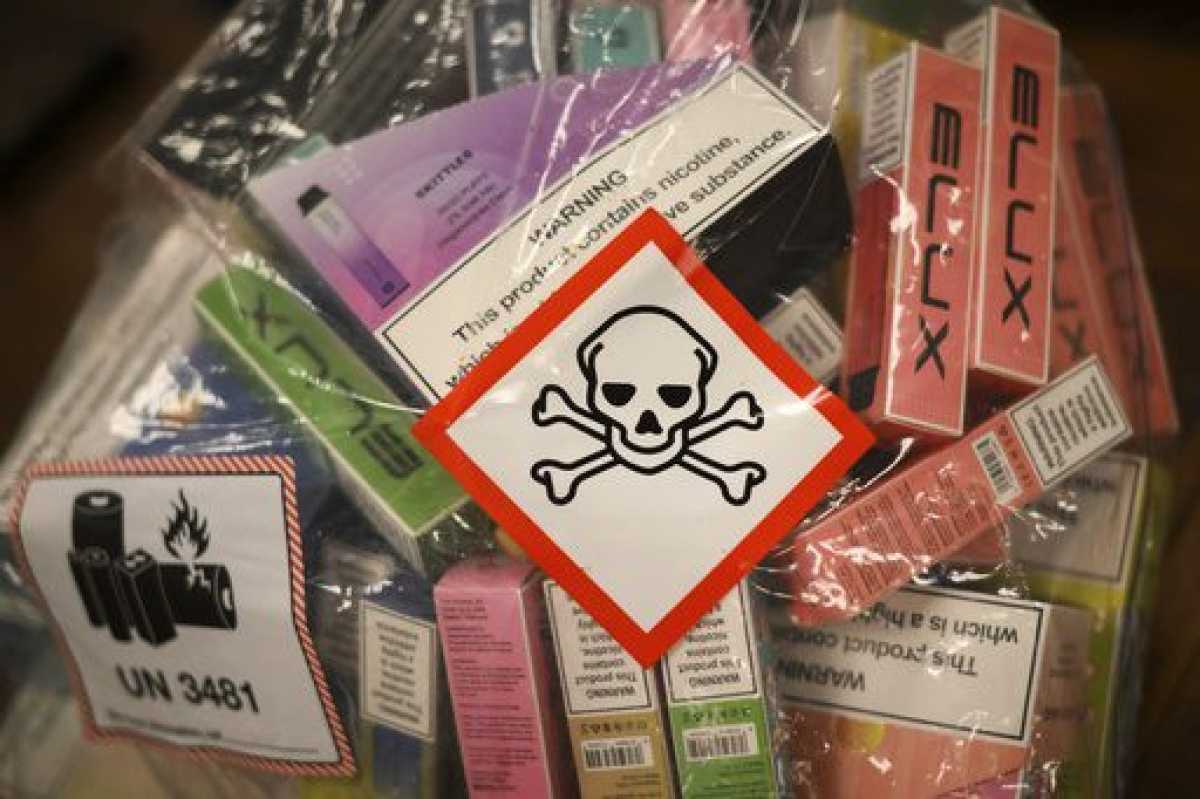Health
UK Plans to Ban Disposable Vapes in Effort to Curb Youth Vaping

The U.K. government has announced its plan to ban the sale of disposable vapes in an effort to address the alarming increase in youth vaping. Additionally, restrictions will be imposed on the marketing and flavors of vapes, aiming to make them less appealing to children. The government also plans to restrict how vapes are advertised in shops.
Prime Minister Rishi Sunak highlighted the unknown long-term impacts of vaping and the highly addictive nature of nicotine, emphasizing that marketing vapes to children is unacceptable. However, he assured adult smokers looking to quit that they would still have access to vape kits.
A study by Action on Smoking and Health revealed that the proportion of children experimenting with vaping has increased by 50 percent year-over-year. The percentage of 11 to 17-year-olds who vape has risen nearly ninefold in the last two years, with disposable vapes being identified as a major contributor to this surge.
The ban is expected to be implemented nationwide by the end of this year or early 2025, aligning with the government’s commitment to creating the first smoke-free generation. Previously, the government announced plans to prevent individuals born on or after January 1, 2009, from purchasing tobacco in their lifetime.
Although the U.K. is not the first country to consider prohibiting disposable vapes, Australia began banning their import due to concerns over teen health. France‘s National Assembly also approved a bill to ban the products in a bid to protect young people and reduce environmental impacts. In addition, the World Health Organization has called for the prohibition of vape sales or the implementation of measures to reduce their appeal through banning flavors, limiting nicotine concentration, or imposing taxes on the products.
Dr. Ruediger Krech, Director for Health Promotion at the World Health Organization, expressed concern about the alarming increase in e-cigarette use among children and young people worldwide, surpassing adult use rates in many countries.
The UK Vaping Industry Association argued that vapes have helped millions of adults quit smoking, and warned that the proposed ban would only increase the risk of the black market thriving. However, Sunak believes the proposed measures strike the right balance by restricting access for children while still ensuring availability for adult smokers looking to quit.
Vaping is generally considered less harmful than smoking cigarettes; however, the long-term risks are not yet fully understood. The vapor from vapes can still contain certain chemicals, including nicotine, which is addictive but not deemed as problematic as other cigarette ingredients, according to the NHS.
These latest plans align with the government’s commitment to create a smoke-free generation. Former Prime Minister Liz Truss criticized the proposed ban, labeling it as “profoundly unconservative.” However, Health Secretary Victoria Atkins expressed confidence that the bill would pass Parliament by the time of the upcoming general election, with implementation anticipated in early 2025.
Campaigners have long argued that disposable vapes are environmentally wasteful and difficult to dispose of safely due to the materials and chemicals they contain, including lithium batteries.
The banning of disposable vapes will be accompanied by measures to stop refillable vapes from being sold in child-oriented flavors and to require plainer packaging. Retailers will be required to display refillable vapes out of children’s sight and away from other products that might appeal to them, such as sweets. Public consultation will be carried out to determine which flavors should be banned and how refillable vapes will be sold.
In order to combat under-age sales, additional fines will be imposed on shops in England and Wales found to be illegally selling vapes to children. The banning of nicotine pouches, an alternative to vaping, for children will also be introduced. These pouches currently contain nicotine but not tobacco and can be legally sold to those under 18.
The governments of Scotland and Wales have expressed their support for the ban through their own legislative processes or by endorsing UK-wide measures. Northern Ireland, currently without a devolved administration, aims to make preparations to allow incoming ministers to decide on the ban in line with their long-standing strategic aim to become tobacco-free.
The UK joins an increasing number of countries considering banning disposable vapes, including Australia, France, Germany, and New Zealand. However, only New Zealand has successfully implemented such measures thus far. Some argue that the UK’s plans do not go far enough, with calls for taxation on e-cigarettes to align them with tobacco products or even making vapes available only by prescription, as in Australia.
Dr. Camilla Kingdon, President of the Royal College of Paediatrics and Child Health, welcomed the proposed ban on disposable vapes as a step towards protecting children’s health and urged further action.












